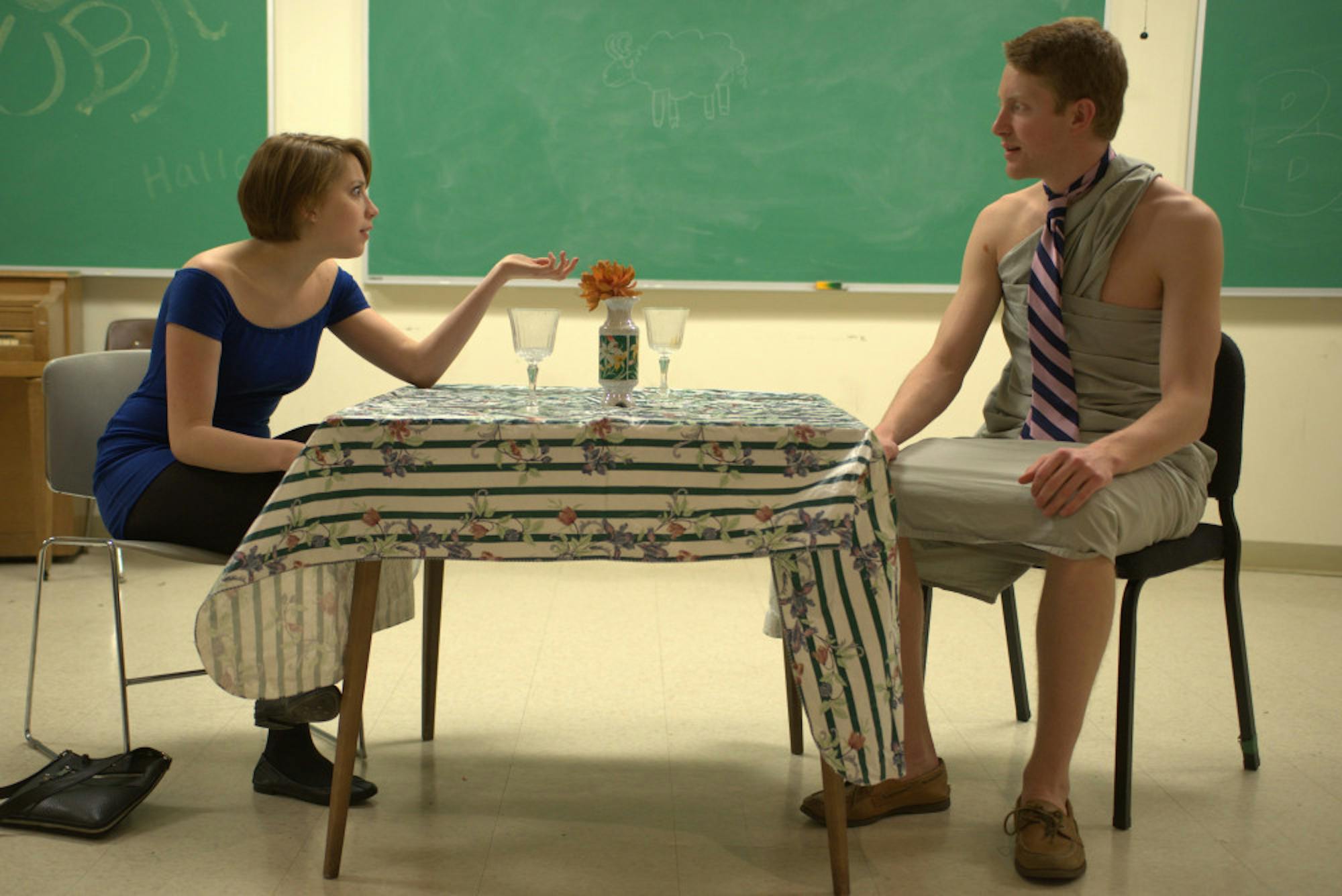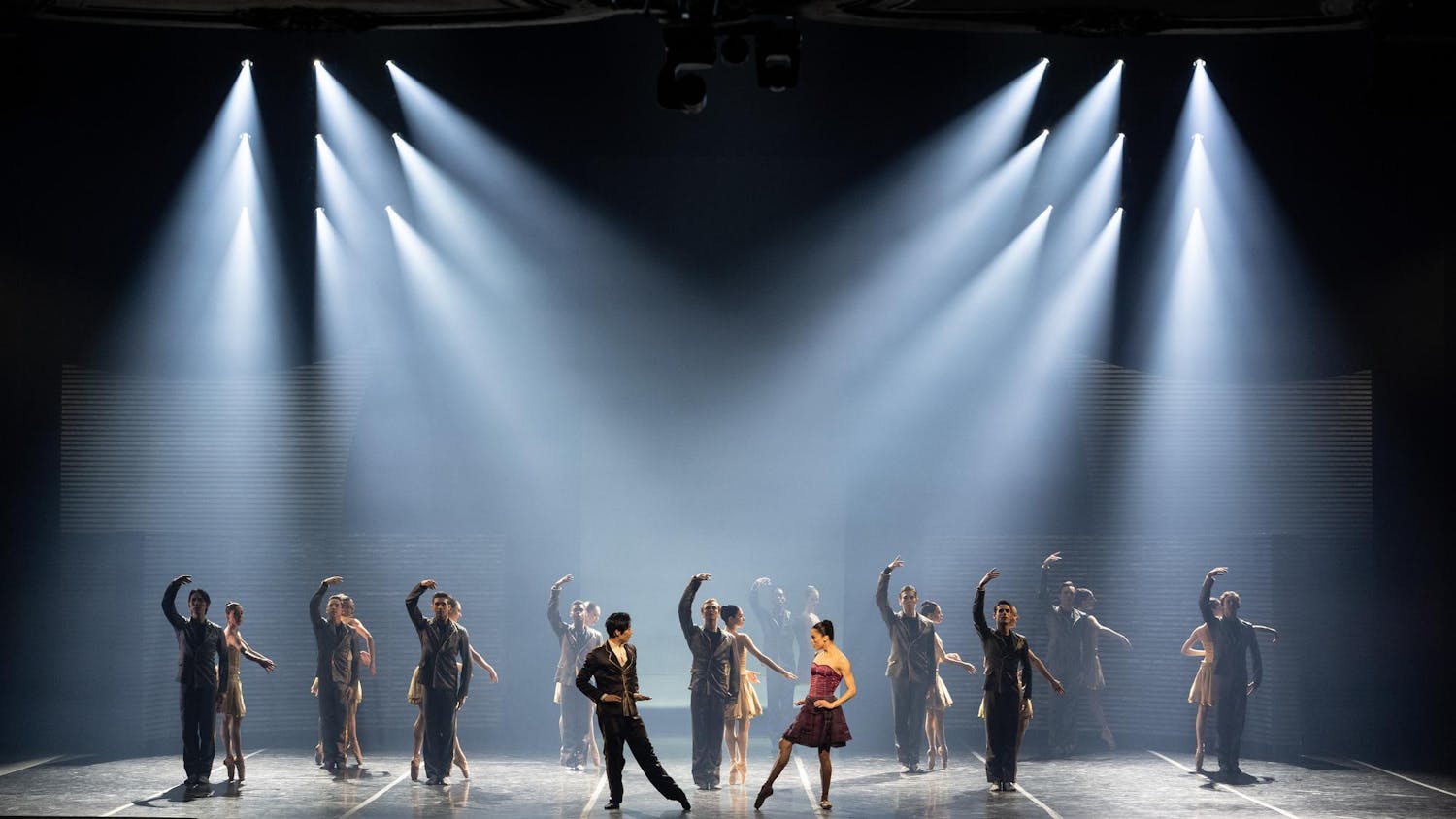Tufts students bring to life a peer’s work tonight. One of two minor productions produced by Pen, Paint and Pencils (3Ps) this semester, “Katabasis” is sophomore Kellyn Henthorn’s original work. Five short scenes compose Henthorn’s play, each of which tells a different story about death, loss or the nature of life.
However, the audience should not expect anything too somber or morose. The vignettes are quirky and fantastical, Henthron said. “Katabasis,” which loosely means “to go into the underworld,” offers poignant comedy intended to defy preconceived notions that the title’s meaning could otherwise denote.
“The one that I wrote first ... takes place in purgatory, and it’s a group therapy session between Jay Gatsby, Jack Dawson of ‘Titanic’ (1997), Satine from ‘Moulin Rouge!’ (2001) and Padme Amidala from ‘Star Wars,’ so you can tell it was very early in the morning when I wrote this,” Henthorn said.
All jokes aside, the characters have a lot in common, Henthron said. She said she aimed to explore their shared experiences with deaths that prematurely tore them apart from their beloved.
In another vignette, called “An untouched salad,” Theseus (sophomore Elliot Cobb) and Persephone (sophomore Michele Herzog) -- god and goddess of the underworld -- go on a painfully uncomfortable date. While not everyone may be familiar with the myth of Persephone -- and Tufts students have certainly not visited the underworld -- the scene won’t be all Greek to audience members.
“[Persephone] comes in late and is very frazzled and tries to be all sexy, but is not actually sexy,” Herzog said.
In fact, anyone who has shared an awkward romantic encounter can easily relate to the humor behind the heroine’s plight. In this regard, “Katabasis” offers a valuable message, according to director Tori Otten, a sophomore.
“Death is a ripple effect, it affects the people who die, and the people who they leave behind,” she said.
Themes about hope also factor prominently into the meaning of the play. Even if a storybook ending is not possible, “Katabasis” highlights that there is always a chance that anything -- even death -- can get better.
Henthorn and Otten expressed a great deal of pride and excitement about “Katabasis,” both as a work of theater and a product of collaboration between Tufts students.
“It almost doesn’t feel like something I wrote, which is exactly what I want it to feel like,” Henthorn said.
Working with limited funding and resources, the cast and crew have nevertheless created a work they could be proud of. They said they hope the audience leaves “Katabasis” performances with a greater appreciation for the creative potential of student theater at Tufts. Henthorn’s work, tweaked through multiple on-campus workshops and brought to life by a dedicated team of Jumbos, is the brainchild of Tufts students’ artistic collaboration.
“I hope [people] take away, first of all, that student theatre can be good and it can be fun,” Otten said.
Those who wish to see “Katabasis” must act quickly. The show will be performed only twice at Tufts, at 7 p.m and then 9 p.m. this evening in Balch Arena Theatre, with each show estimated to last just under one hour. “Katabasis” is not a ticketed event, so audience members need only report to the theater on time to see this new student work.
Original student work on display tonight in Balch Arena

Tufts sophomore Michele Herzog and sophomore Elliot Cobb perform in a dress rehearsal for "Theseus plus Persephone or an Untouched Salad" as part of Katabasis, a student organized play written by Tufts student Kellyn Henthorn in Aidekman 12 on February 23.





